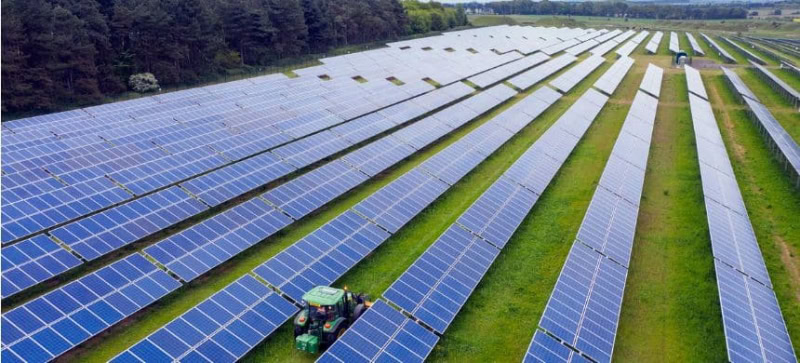On Wednesday, Australia approved a groundbreaking solar and battery farm project, set to be the world’s largest, aimed at exporting energy to Singapore. The project, valued at US$24 billion and spearheaded by SunCable, received environmental approvals for its location in Australia’s northern region. This initiative, supported by tech billionaire and environmental advocate Mike Cannon-Brookes, will feature an extensive array of solar panels, batteries, and an undersea cable to connect Australia with Singapore, supplying energy to about three million homes and covering 15% of Singapore’s energy needs.
The project, spanning 12,000 hectares, is expected to generate four gigawatts of energy per hour for domestic use, with an additional two gigawatts exported to Singapore via the undersea cable. The batteries planned for the site will store around 40 gigawatts of power. Although this is a major milestone, further approvals are necessary, including coordination with Singapore’s energy authority, the Indonesian government, and Indigenous communities in Australia. SunCable’s managing director, Cameron Garnsworthy, called this approval a “landmark moment” and indicated the next steps will focus on planning towards a final investment decision by 2027.
Read more: Pakistan’s Space Agency Releases New Solar Storm Photos
Australia, a major exporter of coal and gas, has also been significantly impacted by climate change, facing extreme weather conditions such as intense heat, floods, and bushfires. While renewable energy adoption has been slow at the governmental level, the country has seen a strong uptake of household solar panels. In 2022, renewable energy accounted for 32% of Australia’s electricity generation, compared to 47% from coal. Experts emphasize that projects like SunCable’s are crucial for Australia to meet its net-zero targets by 2050, although further investment in solar and wind energy is necessary to achieve this goal.
The SunCable project represents a significant advancement in Australia’s renewable energy sector, positioning the country as a leader in green energy. It also marks a substantial achievement for Cannon-Brookes, who has expanded his interests from the tech industry to renewable energy, becoming a significant shareholder in AGL Energy. Climate Council chief executive Amanda McKenzie praised the project as a vital step toward making Australia a “clean energy powerhouse” and emphasized the need for accelerated investment in solar and storage solutions at all levels.









